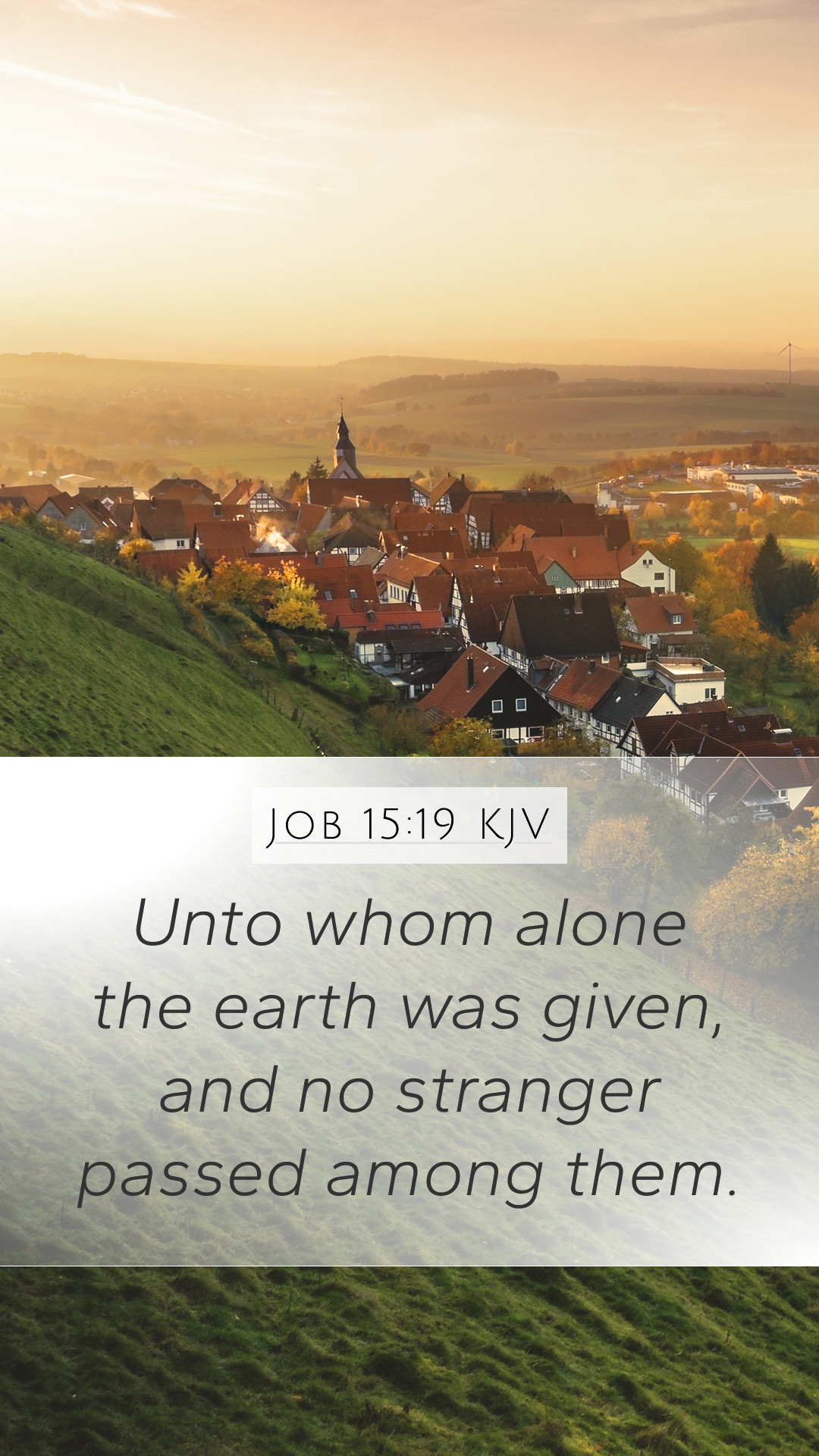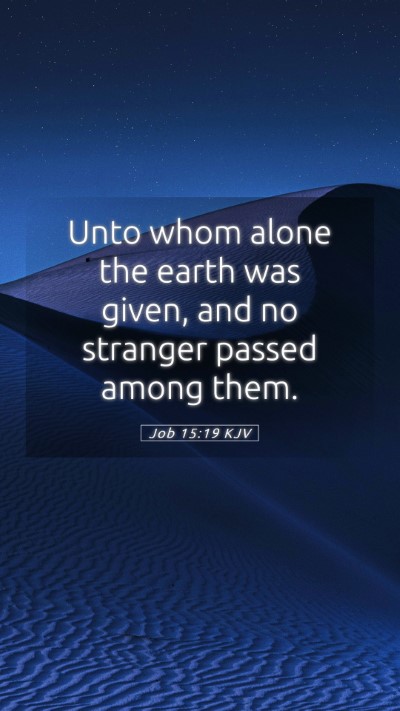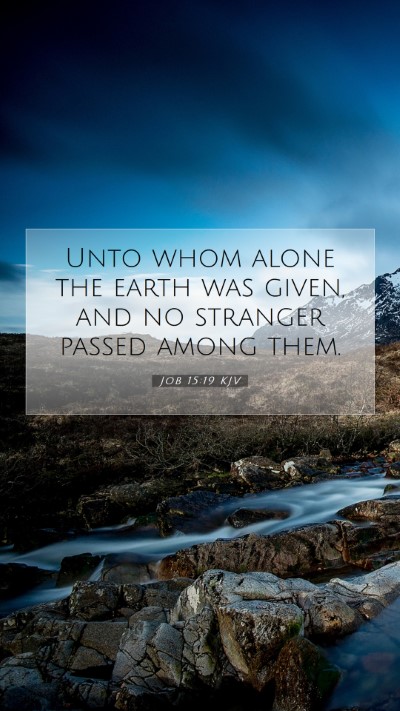Understanding Job 15:19
Job 15:19 reads: "Unto whom alone the earth was given, and no stranger passed among them." This verse belongs to the discourse of Eliphaz, one of Job's friends, who provides his insights on God's justice and the nature of the wicked.
Bible Verse Meanings
The meaning of Bible verses can often be illuminated through historical and narrative contexts. This verse highlights the belief in a divine order where the earth was considered a possession of the righteous, suggesting that prosperity and land were granted only to the deserving.
Bible Verse Interpretations
Eliphaz, representing the traditional wisdom of his time, interprets suffering as a direct correlation to sin. His assertion in this verse implies that the ultimate authority and privilege over the earth reside with those who are favored by God.
Key Insights from Commentaries
- Matthew Henry: He emphasizes that Eliphaz's assertion reflects a broader understanding of divine justice. The righteous, according to Eliphaz, are the sole inheritors of God's creation, indicating that others are considered outsiders to this divine inheritance.
- Albert Barnes: Barnes points out the exclusivity of the land ownership as mentioned in this verse. It stresses the notion that the prosperous condition of the land is a mark of God’s favor upon the righteous, while the wicked are portrayed as temporary intruders.
- Adam Clarke: Clarke elaborates on the idea that this verse is part of Eliphaz’s emphasis on the superiority of the wise and good over the foolish and wicked. He argues that the earth's bounty is reserved for those aligned with God’s will.
Bible Verse Understanding
Understanding Scripture requires context. Job's story unfolds within the framework of suffering, righteousness, and divine justice. Eliphaz's claim reflects a common cultural belief of his time that equated wealth and land with divine approval.
Scripture Analysis
In analyzing this verse, it is essential to consider the cultural and spiritual assumptions of the ancient Near East. The belief that the righteous would inherently receive God's blessings contrasts starkly with Job's experience of undeserved suffering.
Biblical Exegesis
A deeper exegesis of this verse reveals significant theological tensions in the Book of Job. Eliphaz’s argument serves not only to comfort but inadvertently to challenge Job’s comprehension of justice.
Bible Study Insights
For those engaged in Bible study groups or online Bible study platforms, exploring Job 15:19 provides a meaningful lesson on interpreting divine justice. Engaging with this verse’s themes encourages discussions on the nature of suffering and reward in relation to faith.
Application of Scripture
Applying Bible verses to daily life includes grappling with the complexities of righteousness, suffering, and divine favor. Job challenges the simplistic views expressed by his friends, serving as an important reminder of God's intricate designs and plans.
Cross References
- Job 31:2 - Job speaks of the Almighty as the ultimate arbiter of justice.
- Psalms 37:9 - A reflection on the fate of the wicked versus the righteous.
- Psalms 104:13 - God's provision for His creation and the association with the land.
- Proverbs 3:33 - A declaration of God's curse resting on the wicked.
Conclusion
In summary, the meaning of Job 15:19 transcends its immediate implications. Through careful interpretation and commentary, believers can derive profound insights regarding the nature of God's justice, the experiences of the righteous versus the wicked, and the enduring question of suffering in relation to faith. Such Bible verse commentary and analysis enrich one’s understanding of Scripture and deepen one's relationship with God.


